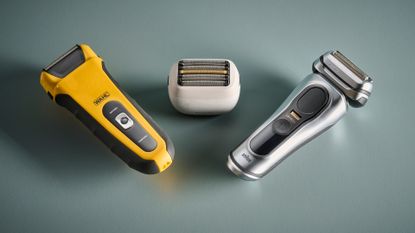Wellness
The latest Wellness breaking news, comment, reviews and features from the experts at T3
Explore Wellness
-

Best beard trimmer 2025: premium shavers for stubble, short and long beards
Find the best beard trimmers, clippers and shapers to maintain a well-tended beard or on-trend stubble
By Bethan Morgan Last updated
-

Best body groomer 2025: find the top manscapers on the market
Find the best body groomers and the best manscaping groomers for your back, torso, downstairs and everywhere else...
By Lizzie Wilmot Last updated
-

Best duvet 2025: snuggle up for a great night's sleep
Find the best duvets to snuggle up with, from down, wool, synthetic and beyond
By Bethan Morgan Last updated
-

Best wake up light 2025: sunrise lamps to wake you up naturally
Banish the morning blues with the best wake up lights, from Lumie, Philips, Beurer and more
By Bethan Morgan Last updated
-

Shark FacialPro Glow review: incredible at-home skincare with professional results
Does this clever skincare gadget deliver? (Spoiler: yes)
By Lizzie Wilmot Published
-
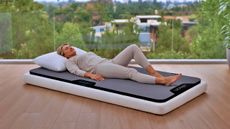
This ‘world’s first’ wellness mat relieves pain and improves sleep – but it’ll cost you
Woojer introduces the MAT, a wellness-driven mattress topper
By Bethan Morgan Published
-

3 walking meditations you need to try to beat the winter blues
These walking meditations help improve your mood and move your body for a mental health boost
By Kat Bayly Published
-
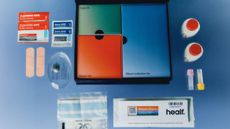
I tried Healf Zone’s at-home test, and was surprised by what nutrients I was deficient in
Healf Zone promises to improve my wellbeing – but is it worth the cost?
By Bethan Morgan Published
-

9 best Christmas fragrances for men: festive scents from Tom Ford, Maison Margiela, Burberry and more
Smell like Christmas with T3’s picks of festive fragrances and colognes
By Bethan Morgan Published
-

My favourite sleep app just got an AI-powered sleep coach – and I can’t wait to try it
Sleep Cycle just gave its app an AI upgrade that could drastically improve your sleep
By Bethan Morgan Published
-
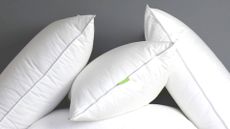
Best pillow 2025: down, wool, bamboo and synthetic options to rest your head
Upgrade your sleep set-up with the best pillows for all budgets
By Bethan Morgan Last updated
-

Best Cyber Monday deals on men's fragrances and colognes live – snap up these bargains before the sales end tonight
Hand-picked deals from T3's fragrance experts, including Ralph Lauren, Tom Ford, Jean Paul Gaultier and more
By Sam Cross Last updated
-

Every one of T3’s best electric shavers is discounted on Cyber Monday – this hardly ever happens
Our best premium pick has even been hit with a massive 71% price cut!
By Lizzie Wilmot Last updated
-

10 Cyber Monday men’s grooming and skincare deals you should grab today
Stock up before the last of the Cyber Monday bargains are gone
By Lizzie Wilmot Published
-
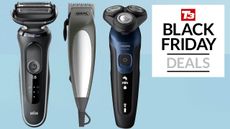
7 best Cyber Monday shaver deals, from Philips, Braun, Manscaped and more
Save over £400 on electric shavers, trimmers and IPL machines right now
By Bethan Morgan Last updated
-

I review hair tools for my job – here are 5 last minute hair styler deals from Dyson, Shark, ghd and more
Get up to 64% off hair stylers in the Cyber Monday sales
By Bethan Morgan Published
-

I made my dream bedroom with these 5 essentials – and they're all on sale for Cyber Monday
Get up to 40% off my favourite mattress, cosy duvet and more!
By Bethan Morgan Published
-
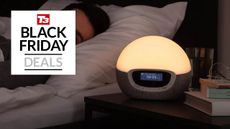
Lumie’s best wake up light hits low price for Black Friday – it’s a must for darker mornings
Wake up naturally and peacefully with this Lumie wake up light deal
By Bethan Morgan Published
-

This smart wearable acts as your own personal thermostat – and it looks great too
Embr’s new Wave 2 might look like a smartwatch but there’s much more to it
By Bethan Morgan Published
-

The GOAT of IPL hair removal devices gets £260 discount in Black Friday deal
I’ve never seen the Philips Lumea IPL hair removal device so cheap before!
By Bethan Morgan Published
-

These 11 Tom Ford Black Friday deals are seriously cheap right now!
My favourite Tom Ford fragrances are now cheaper than ever for Black Friday
By Bethan Morgan Last updated
-
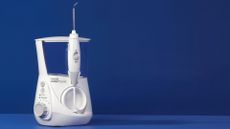
This Black Friday deal will make you smile all year and its 33% off right now
Waterpik's water flosser is one of the best options on the market and will keep your mouth clean for less
By Mat Gallagher Published
-
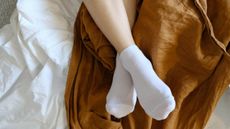
“Warm your feet or you won’t sleep!” – doctor explains how to keep feet warm during UK cold snap
Combat the UK’s cold snap with these quick feet warming tips
By Bethan Morgan Published
-
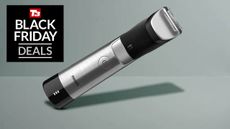
This Philips beard trimmer is cheaper than ever for Black Friday – and it’ll make a great Christmas gift
Get 31% off the Philips 9000 Prestige Beard Trimmer at Boots right now
By Bethan Morgan Published
-
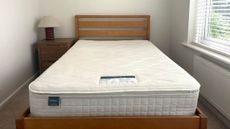
Silentnight Newbury 1000 Pocket Eco Pillow Top Mattress review: a supportive, plush option for the guest room
Be warned – the cosy pillow-top on this firm mattress might make visitors so comfortable they won’t want to leave
By Emily Peck Published
-

So many excellent LED face masks have a Black Friday discount – I need you to see these 5 deals before it's too late
Each one of these LED face masks has scored four or five stars in our full reviews
By Lizzie Wilmot Published
-
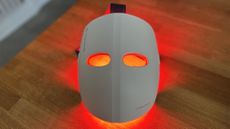
Therabody TheraFace Mask Glo review: a smarter, simpler take on LED skincare
The TheraFace Mask already had a strong reputation, so how well does the new Glo version perform? Let's find out
By Lizzie Wilmot Published
-

I sleep on this Emma mattress every night and it’s cut to super low price for Black Friday
Get up to 30% off Emma mattresses – and free mattress protectors!
By Bethan Morgan Published
-
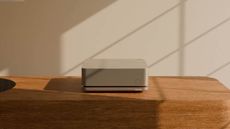
Ultrahuman Home gets major sleep upgrade and can even detect snoring
Ultrahuman Home can now track your sleep better than before
By Bethan Morgan Published
